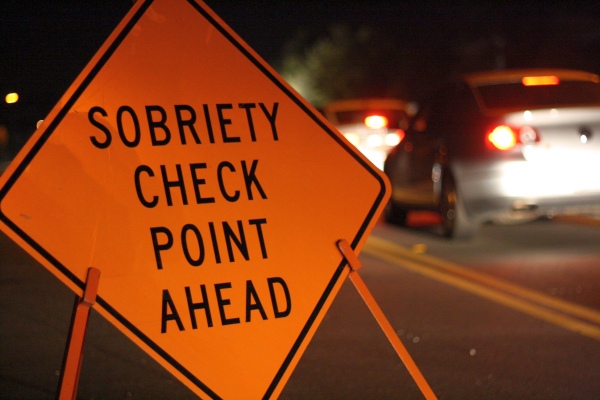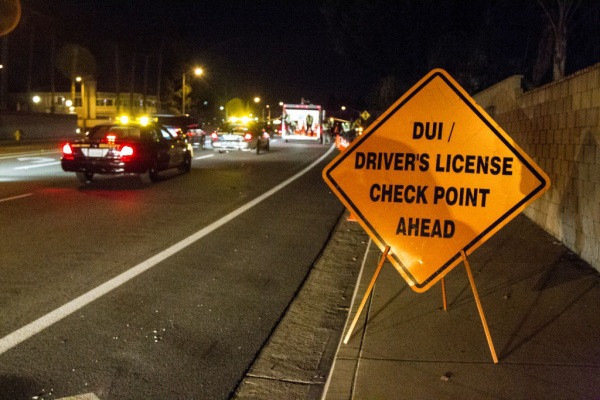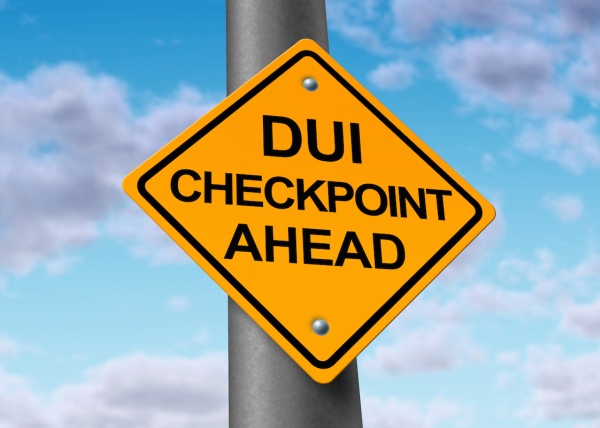Oregon DUI checkpoints (also called “sobriety checkpoints”) are illegal under the Oregon State Constitution. Oregon DUI checkpoints were made unconstitutional in 1987. However, DUI saturation patrols are still allowed– and often take place on holiday weekends and during special events.

Sobriety Checkpoints in Oregon are
an Unreasonable Warrantless Search and Seizure
The case that ruled Oregon DUI and Sobriety checkpoints were illegal was State v. Boyanovsky, 304 Or. 131, 743 P.2d 711 (1987). In Boyanovsky, the Court analyzed the legality of a “sobriety roadblock” conducted to discover and arrest persons committing the crime of driving while under the influence of intoxicants. In this specific incident, the Oregon State Police, Benton County Sheriff’s Office, and the Philomath Police Department, conducted a roadblock on Highway 20 near the Philomath city limits. The Defendant (Mr. Boyanovsky) was stopped and arrested for driving under the influence of intoxicants. The Defendant later challenged the legality of the roadblock on statutory and constitutional grounds. He argued that the roadblock was unlawful because it took place without statutory authority or agency rules allowing and controlling such a procedure. The trial court found that the search and seizure did not violate the state or federal constitutions, but the Oregon Supreme Court reversed the trial court’s decision citing State v. Anderson, 304 Or. 139, 743 P.2d 715 (1987), and noting (again) that:
“Before government officials can embark on a search or seizure for evidence to be used for this purpose, they must have individualized suspicion of wrongdoing. Further, unless they can show to a court’s satisfaction, after the fact, that they did not have time to obtain a warrant, the authorities must have judicial authorization, in the form of a warrant, before the search or seizure. Defendant was seized when his vehicle was stopped. His vehicle is, like other possessions, an “effect” in which he is entitled to be “secure against unreasonable search, or seizure.” Or. Const. Art. I, § 9. His person and documents were searched and the evidence obtained was used to convict him of a crime. These acts occurred in the absence of any belief that he had committed an offense. The officers did not comply with the constitutional standards for searches and seizures. Or. Const. Art. I, § 9. The evidence must be suppressed.”
Oregon is actually in a minority of states that do not allow the forced stopping of all motorists in an attempt to find “drunk drivers.” Thirty-eight states and Washington D.C. allow DUI checkpoints, but twelve states prohibit them (either by state law or state constitution. In addition, Texas prohibit DUI checkpoints based on the State’s interpretation of the U.S. Constitution. For a detailed list, see the Governor’s Highway Safey Administration site on national DUI checkpoint laws.

DUI Saturation Patrols
DUI Saturation Patrols in Oregon are still legal. They are different from checkpoints that stop everyone on a given road or highway. Saturation patrols are typically grant-funded and provide officers with overtime pay as an incentive to stop as many people as possible. With numerous traffic violations available under the Oregon Vehicle Code, they are allowed to commit pretext stops in order to determine if the driver has had anything to drink. If so, the driver will almost certainly be asked to perform Field Sobriety Tests. If the tests are not performed without error, they will be arrested. The problem with saturation patrols is that they cast a wide net and the number of innocent people snared is grossly unreported. Most officers do not keep track of their DUI investigations and they only keep track of their DUI arrests. As a result, the statistics are often misleading. The police may issue a press release touting a half-dozen DUI arrests on a busy weekend. But they don’t mention that perhaps twice as many people were falsely accused of drunk driving.

Will DUI Checkpoints Be Coming Back to Oregon?
Some Oregon lawmakers have proposed passing a law to again allow Oregon DUI checkpoints, but the bills that have been discussed and have not passed. The interesting thing about DUI checkpoints is that they are a significant burden on lawful drivers, and they are extremely inefficient at finding DUI drivers. A great illustration can be found from this story on a California DUI checkpoint sting that ran for a weekend. Of the 1,633 cars that passed through in two days in La Quinta, California (population 40,000), local cops found only one alleged DUI driver. In Oregon, this sort of mass dragnet and forced stopping of lawful drivers would be considered an unlawful stop and detention without reasonable suspicion or probable cause.
